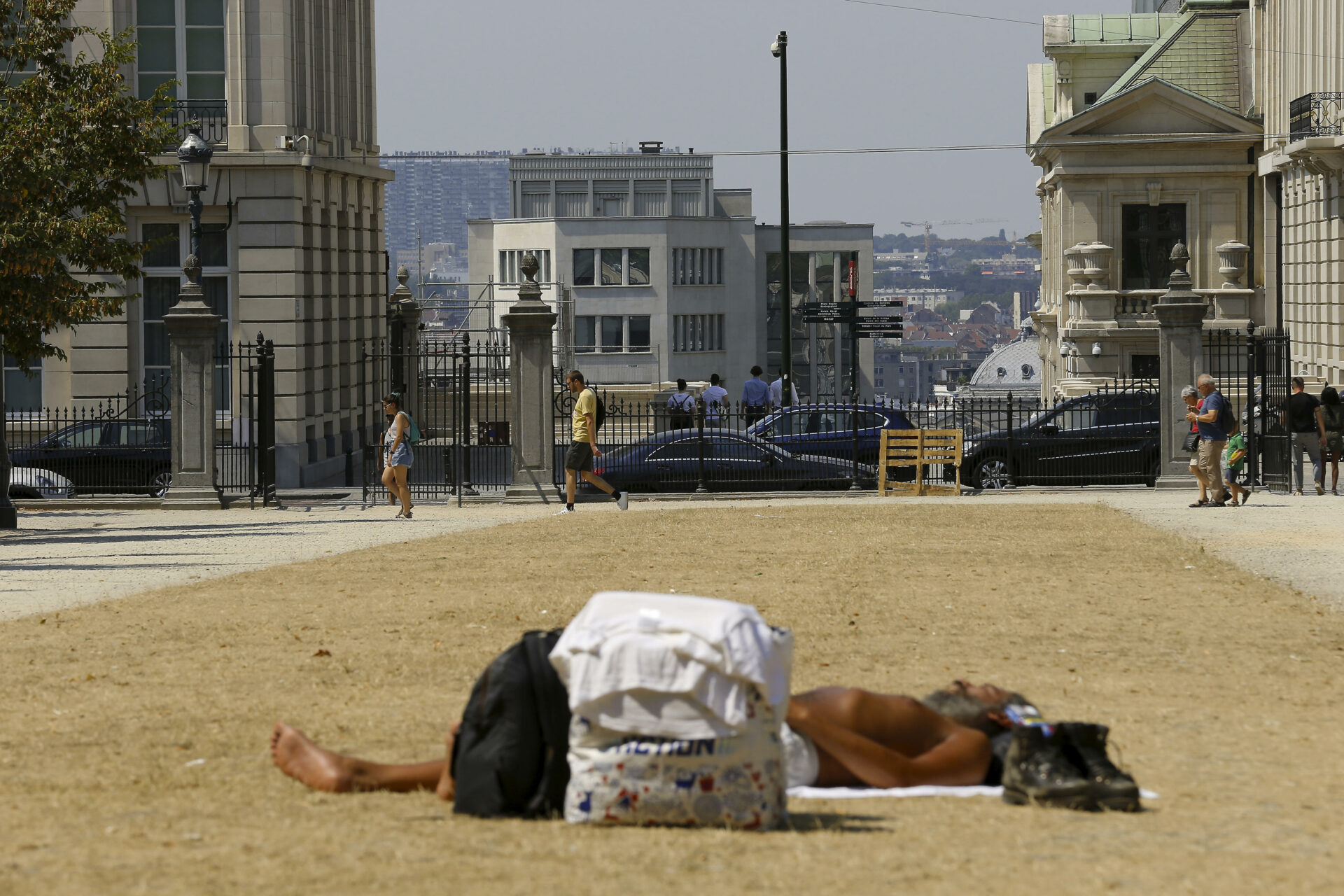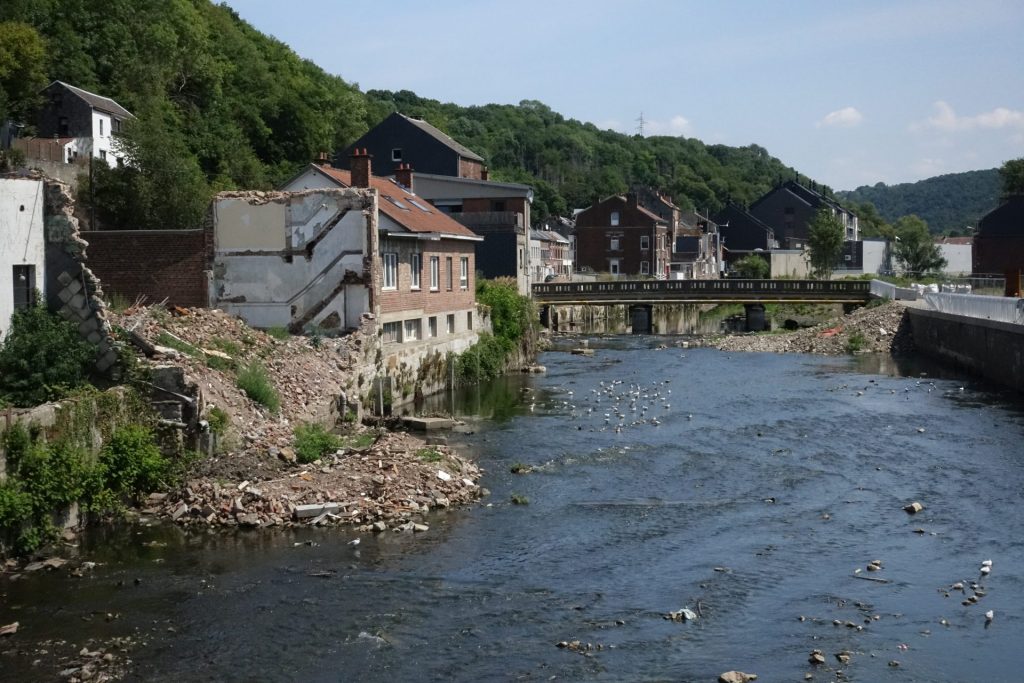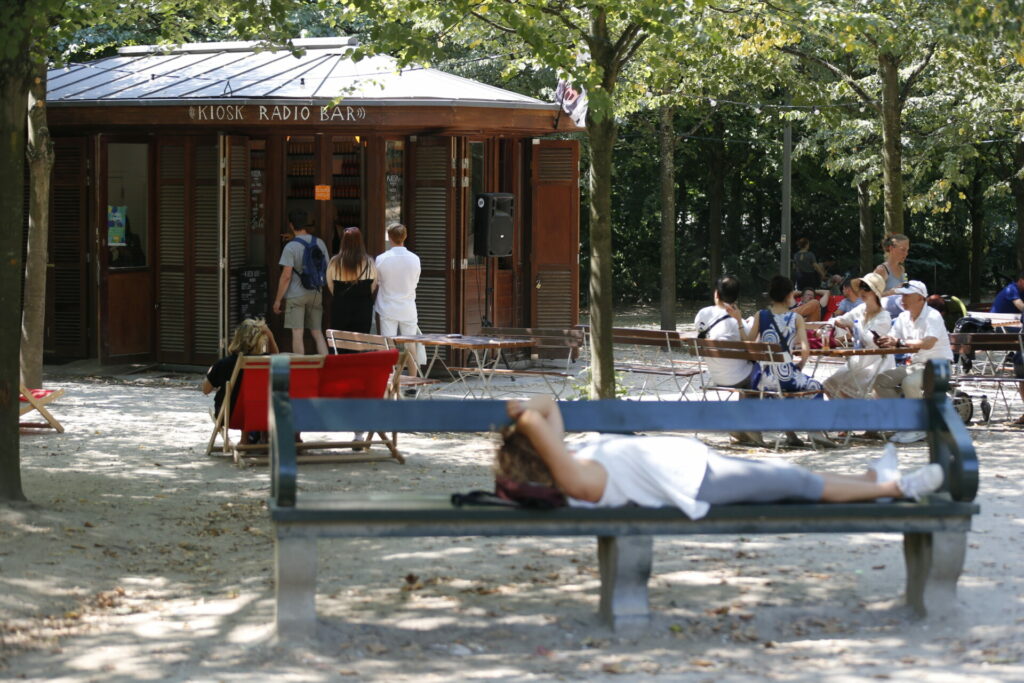The need to limit global warming is growing increasingly urgent in urban areas, which are prone to more extreme heatwaves and less resilient to flooding. Remaining on the current trajectory will make life significantly less bearable for urbanites – in Brussels too.
Worldwide, cities account for over 70% of global CO2 emissions, as well as having high pollution levels that impact the immediate environment significantly. On top of this, they are much more vulnerable to weather-related extreme events, Rafiq Hamdi, warns Senior Researcher at the Royal Meteorological Insitute (RMI).
"For cities the situation is different," he told The Brussels Times. The 2015 Paris Agreement sets out to limit global warming to "well below" 2°C above pre-industrial levels, with the aim of keeping it below 1.5°C. But this has long been surpassed in many cities. "In Brussels we are already at 2°C warming compared to the reference period 1850-1900." Meanwhile in London, human-driven causes contributing to climate change resulted in 3.2°C warming.
"Even with drastic reductions in greenhouse gas emissions, global warming of 1.5°C will be exceeded by 2100. This will warm Brussels by 3.6 to 4°C." This will have major repercussions on people and life in the city.
Lethal heat
The most severe extreme climate event that will affect Brussels will be heatwaves. Already the so-called "heat island effect" (that results from around 80% of the city's surface area being built-up and with less greenery) means that periods of warmth are much more acute in Brussels than in surrounding rural areas.
"Heatwaves will become much less bearable as they will be more frequent and extreme," said Hamdi. Already in 2017, a KULeuven study showed that from 2040 onwards, Belgian cities such as Brussels and Antwerp will suffer from extreme temperatures more than 17 days per year, while researchers predict "only" seven of such "heatwave days" for the countryside.

Credit: Belga / Nicolas Maeterlinck
Heat stress – how heatwaves affect human comfort based on humidity, temperature and other factors – will increase twice as much in the cities as in rural areas. Heat stress is increasingly problematic as the temperature rises, going from comfortable to dangerous and then very dangerous.
"Based on our calculations, the number of hours during which residents in Brussels are exposed to very dangerous levels of heat stress will double."
The KULeuven study showed that the temperature difference between major cities and the countryside at night can be up to 12°C, the warm bricks and concrete acting as a radiator to prevent the normal cooling period.
Moreover, there is a clear link between heatwaves and higher excess mortality, including in Brussels. The number of people going to hospitals for health problems such as respiratory problems also spikes. Heat also reduces work performance and results in higher energy consumption to cool down indoor spaces. This in turn leads to more emissions unless there is a major switch to renewable energy.
Water management won't only stem from the lack of it: "If there is heavy precipitation in urban areas, the surface runoff will be exacerbated because of the concrete. The water cannot infiltrate," Hamdi stressed. This means flooding will be much more intense. "This is particularly dangerous for coastal cities because of the rising sea levels and also cities located beside rivers."

Pepinster in the Belgian Ardennes one year on from the deadly July 2021 floods. Credit: Orlando Whitehead
Long-term solutions
Regional and local governments can have a significant influence over how weather-related extreme events affect cities. In Brussels, steps are already being taken.
"Since the beginning of the legislature, we have placed climate change at the heart of the Brussels government's programme," Brussels Environment Minister Alain Maron told The Brussels Times. "Our objective is clear: to make our region more resilient and adaptable, not only to protect its environment but also to safeguard the health and quality of life of its inhabitants."
Brussels has adopted the Air Climate Energy Plan, with ambitions to transition towards a low-carbon society, but also introduced a region-wide Low Emissions Zone (LEZ) to improve air quality. It is also strengthening the regional "green and blue network". For example, it is increasing vegetation. Several of these measures are also defined in the Good Living urban policy.
"These measures will enable us to combat the heat waves in the city during heatwaves, and limit flooding during heavy rains," Maron noted.
Hamdi recognised that policymakers and urban planners are increasingly aware of the problem. But many are concerned that the planned measures won't suffice. Hamdi simulated a Brussels with more vegetation, including on roofs, and systematically applied the albedo effect (when roofs are painted white to minimise solar absorption).
"All these mitigation techniques improved the situation and reduced the number of heatwaves in Brussels by 22% by 2040. But the benefits are not long-term, by the end of the century this effect diminished."
Maximising vegetation and having a permeable surface is critical, Hamdi stressed. There is also a need to balance mitigation techniques (such as solar panels or green roofs with plants on) and adaptation (improving infrastructure to cope with climate change).
He added that governments must be more active in making people aware that the urban heat effect could affect their health – both physically and mentally. "We need to involve people that will be affected by this in the adaptation and mitigation process."
What is certain is the need for immediate action. "We cannot wait. The window to prepare and improve the situation is closing, If the necessary steps aren't taken, the financial and health costs will be much higher."

